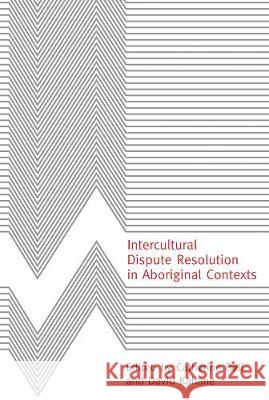Intercultural Dispute Resolution in Aboriginal Contexts » książka
Intercultural Dispute Resolution in Aboriginal Contexts
ISBN-13: 9780774810272 / Angielski / Miękka / 2005 / 392 str.
In the last twenty years, there has been a growing interest in alternative dispute resolution (ADR), as scholars and practitioners seek more effective, context-sensitive approaches to conflict. Where formerly conflict was tackled and "resolved" in formal legal settings and with an adversarial spirit, more conciliatory approaches - negotiation, mediation, problem-solving, and arbitration - are now gaining favour. These new methods are proving especially appropriate in intercultural contexts, particularly for Aboriginal land claims, self-government, and community-based disputes.The essays collected here by Catherine Bell and David Kahane provide a balanced view of ADR, exploring its opportunities and effectiveness alongside its challenges and limits. They are international in scope, with examples of efforts (some successful, some not) at dispute resolution involving Inuit and Arctic peoples, Dene, Gitxsan and Wet'suwet'en, Tsuu T'ina, Cree, Metis, Navajo, Maori, Aboriginal Australians, and Torres Strait Islanders. They have been written by theorists and practitioners, and by Aboriginals as well as non-Aboriginals. The book is divided into four sections: theoretical perspectives, international contexts, Canadian contexts, and issues of design and implementation. Each offers a focused examination from several different viewpoints.This book will appeal to students and scholars of Aboriginal law and alternative dispute resolution; legal and political theorists; dispute resolution practitioners; and anyone involved in land claims, treaty, and self-government agreements in Canada or abroad.











